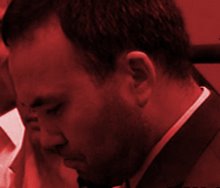Uzbekistan: Family Demands Release Of Uyghur Imam Extradited To China
 |
| Uyghurs in Xinjiang, where Celil is from (file photo) |
| (epa) |
PRAGUE, June 30, 2006 (RFE/RL) -- Huseyincan Celil traveled from his home in Canada to Tashkent early this year to meet in the Uzbek capital with three of his children, who still live in China.
But disaster struck on March 27 when Celil was detained by Uzbek authorities apparently acting on a request from China.
Detained And Extradited
Family members visited him regularly in detention in Tashkent until mid-June, when he disappeared. The Canadian Department of Foreign Affairs this week informed the family that Uzbekistan had extradited him to China.
"This is terrifying news," said Alim Seytoff, the director of the U.S.-based Uyghur Human Rights Project. He called this development "the worst-case scenario."
Seytoff was referring to the harsh treatment Chinese authorities have meted out to Uyghur rights activists and separatists seeking to restore an "East Turkestan" state in what is now China's western Xinjiang Autonomous Region.
Stronger Response From Canada?
In the Canadian capital, Ottawa, Foreign Affairs Department spokeswoman Kim Girtel said Canada would continue to press China to confirm that Celil is being held there.
But the Celil family's lawyer, Chris MacLeod, wants a more forceful approach. He told RFE/RL that Canada must let the world know that it should not "mess with Canadian citizens." He said in this case, Uzbekistan has seen fit to turn over a Canadian citizen to China without even consulting Canada.
"We want the Canadian government to very vigorously remind Beijing that 'A,' this is a Canadian citizen, he belongs nowhere other than in Canada; and 'B,' to remind them as well that China is hosting the 2008 Olympics -- a coming together of nations from around the world -- and that it is very inappropriate for them to be detaining Canadian citizens whose only offense has been exercising their right to express themselves," he said.
Uzbekistan, like Russia and other Central Asian republics, has a security agreement with Beijing that human rights groups say commits them to extradite any political dissidents wanted in China who arrive on their territory. China reportedly negotiated these deals with a view to countering the Uyghur separatists.
MacLeod says that for Beijing to "flagrantly" trample on human rights when it is in the midst of preparing to host the world at the Olympics "is an offense to all freedom-loving people around the world."
An Activist For Uyghur Issues
The lawyer denied that Celil had been involved in any acts of violence to further the Uyghur separatist cause.
"His 'crimes' -- if you can call them that -- in China were teaching Uyghur children -- those under the age of 18 -- their Turkic mother tongue, which is an offense; teaching them the tenets of their [Muslim] faith, and speaking out broadly against the oppressive tactics of the Chinese government in its dealings with the Uyghur people," he said.
Celil carried on similar activities in Canada as a Canadian citizen, advising and reminding the Canadian government of what the Uyghur people face in China. It was for this reason that he came onto the "radar screen" of the Chinese government, MacLeod said, and that's "just unacceptable."
However, China reportedly wants Celil on charges relating to an attack six years ago on a Chinese state delegation visiting Xinjiang province. He could face the death penalty if convicted.
Further complicating the situation is that Celil's name appears in the sentencing document of Uyghur activist Ismail Semed, who was sentenced to death in 2005 for separatist activities. Celil is described in that document as an accomplice of Semed. It is not clear if Semed has already been executed.
Neither Uzbekistan or China has publicly commented on Celil's case.
Celil fled China in the 1990s for Turkey, and arrived in Canada in 2001 as a refugee.
The 37-year-old Imam has six children (three of whom are in Canada) and his wife, Kamila, is pregnant.








No comments:
Post a Comment